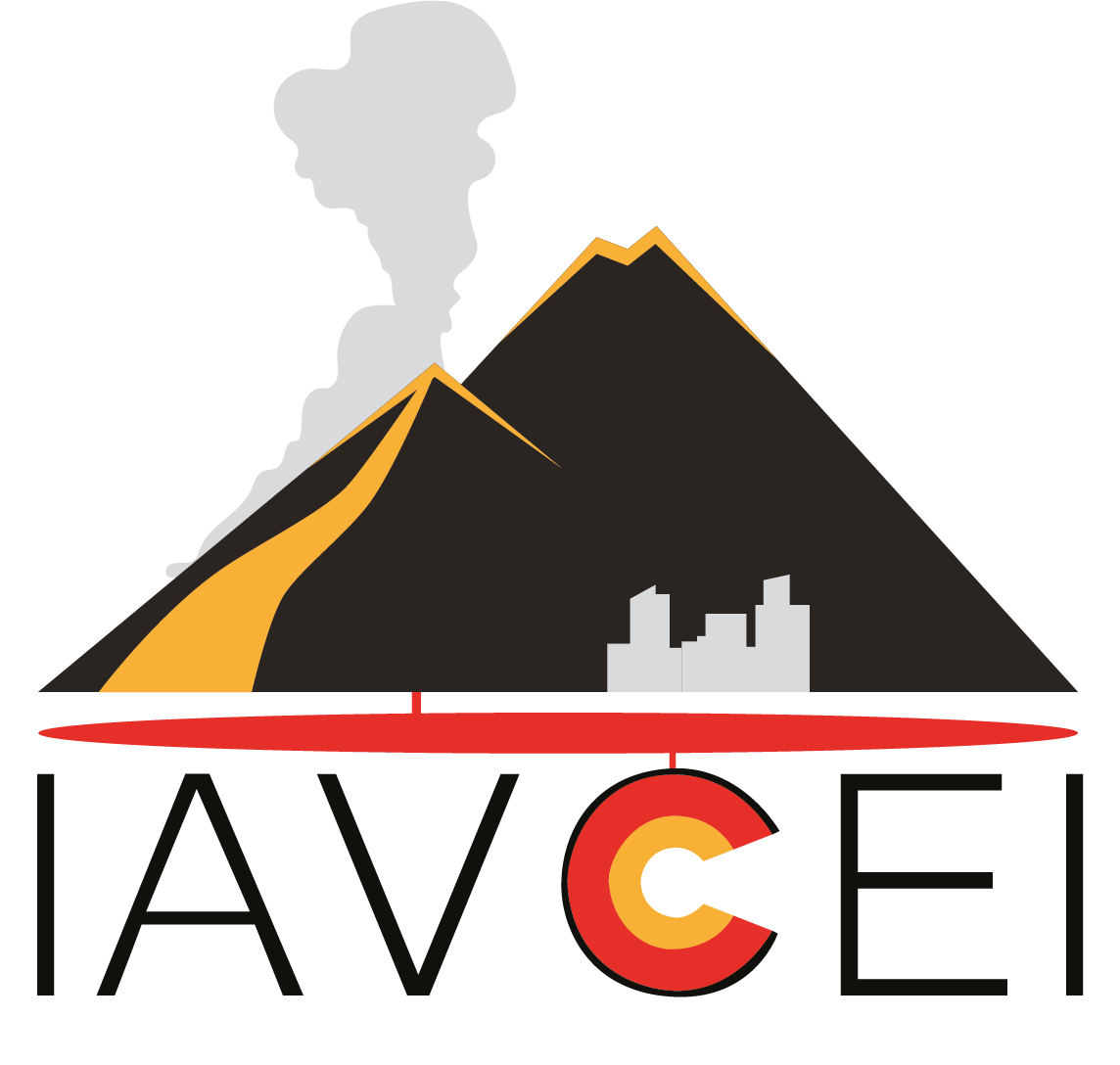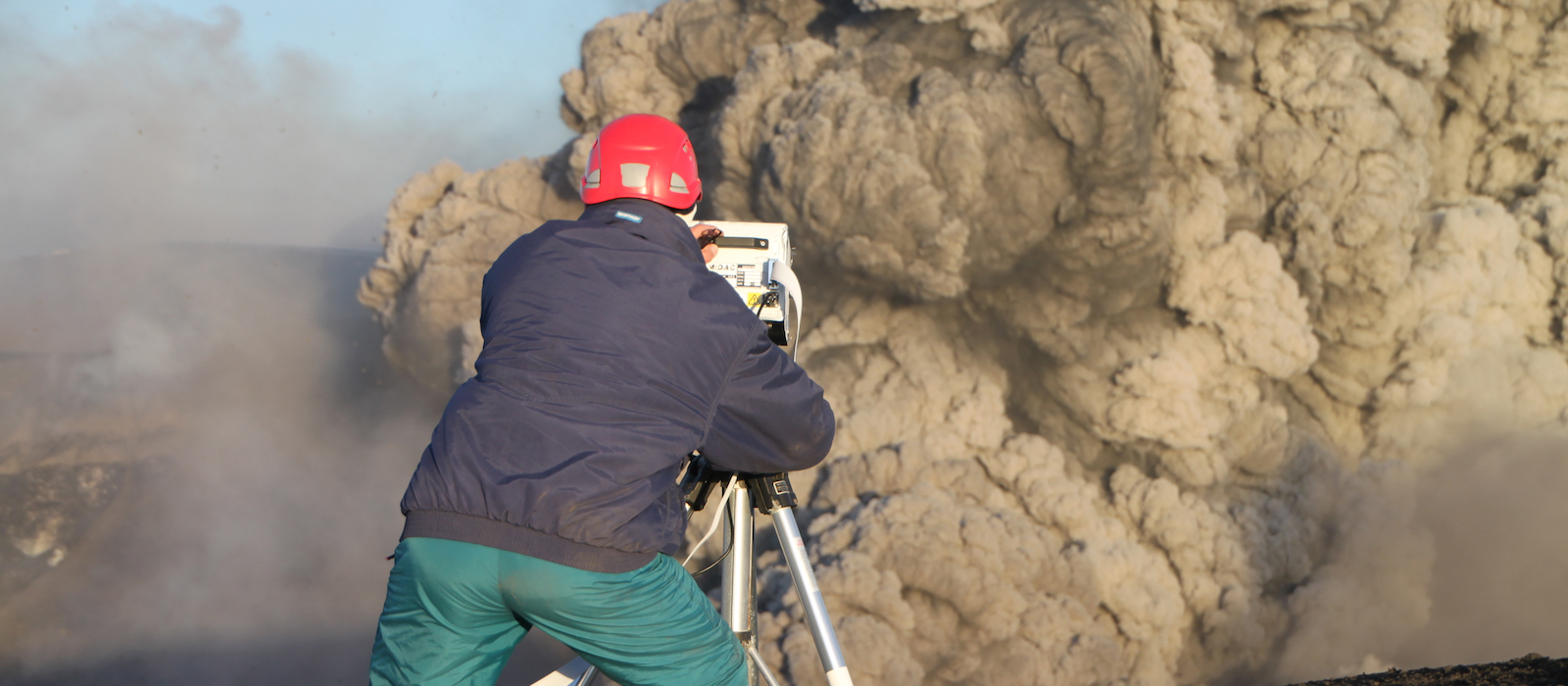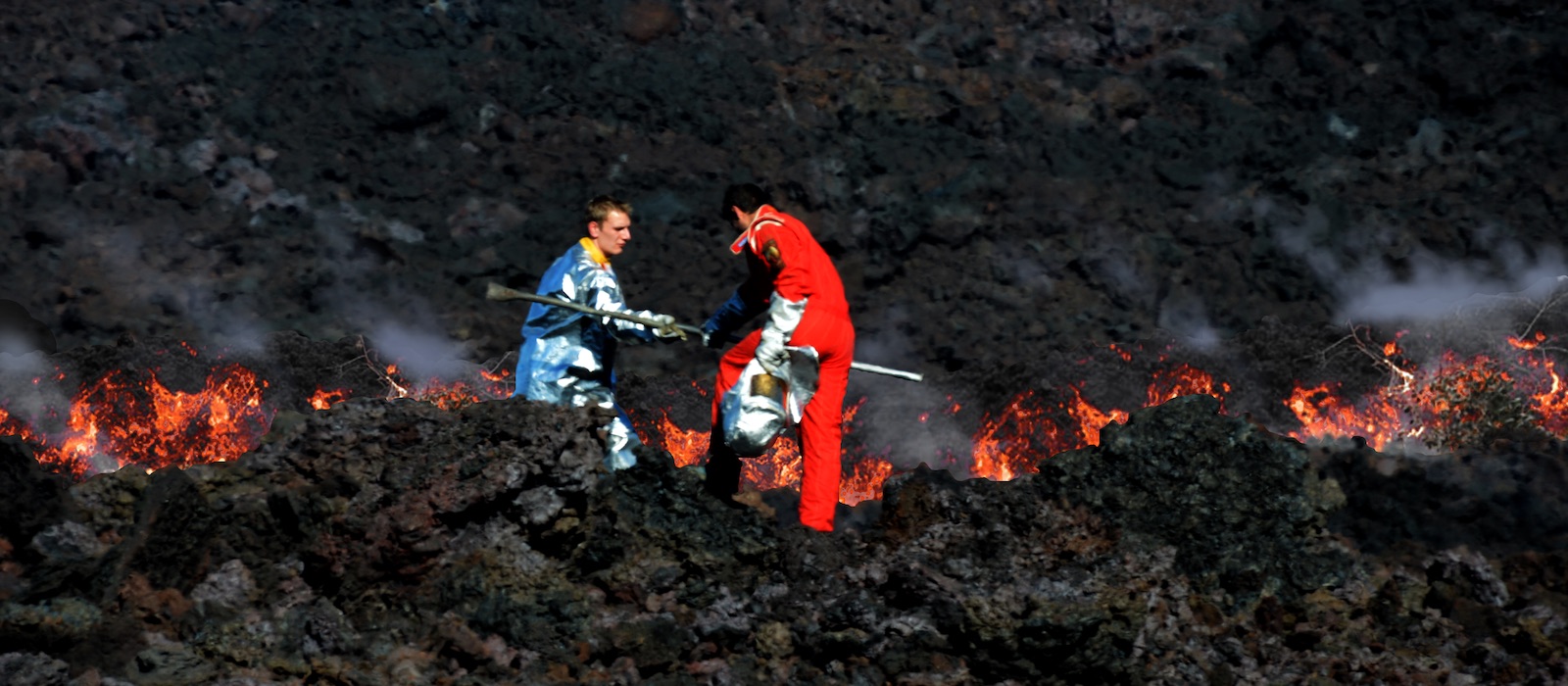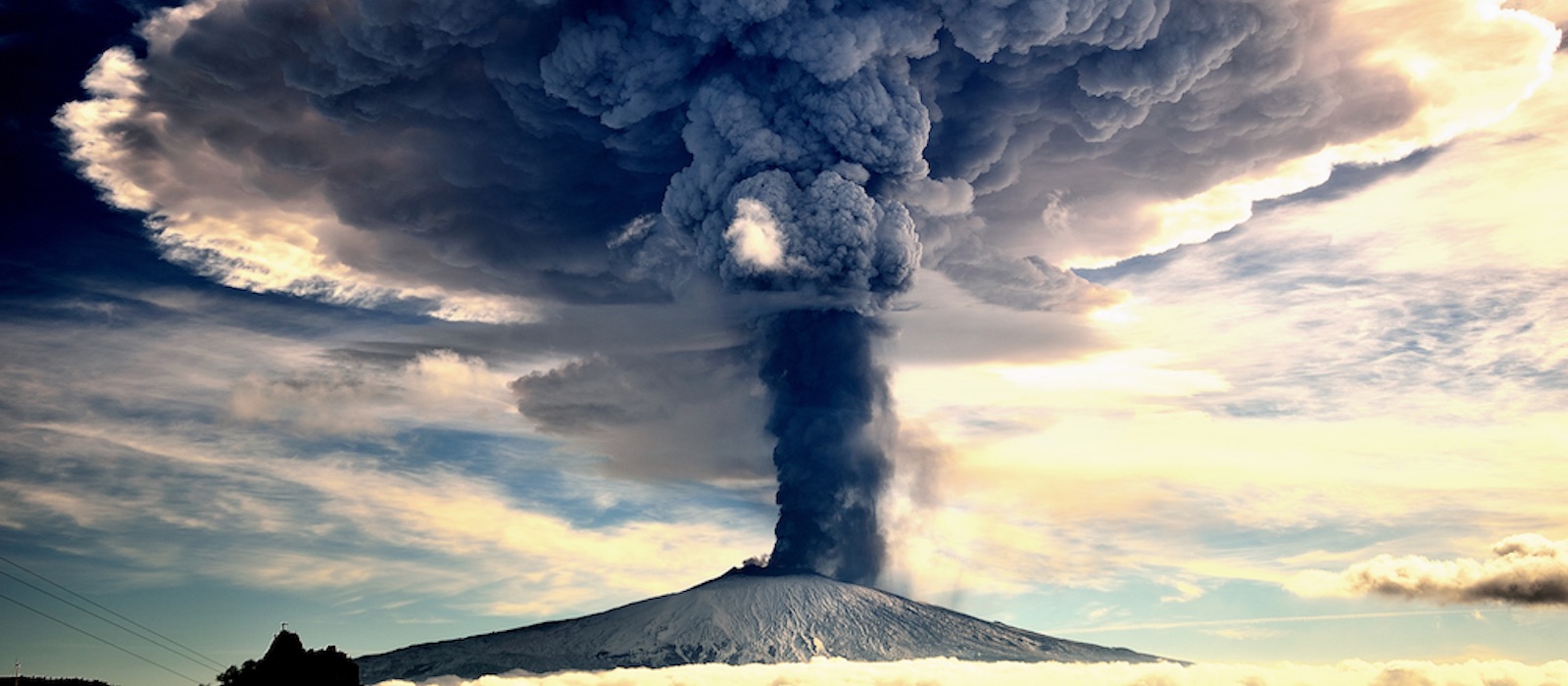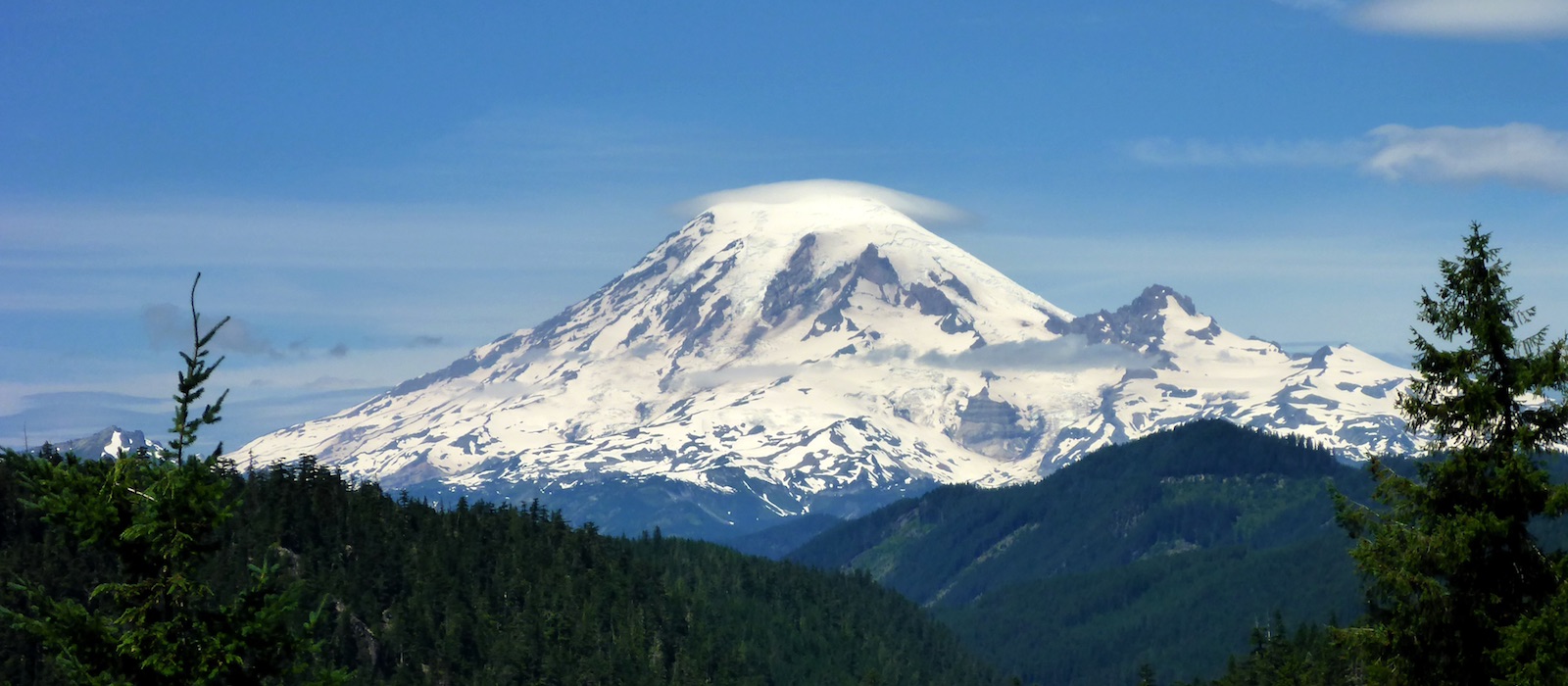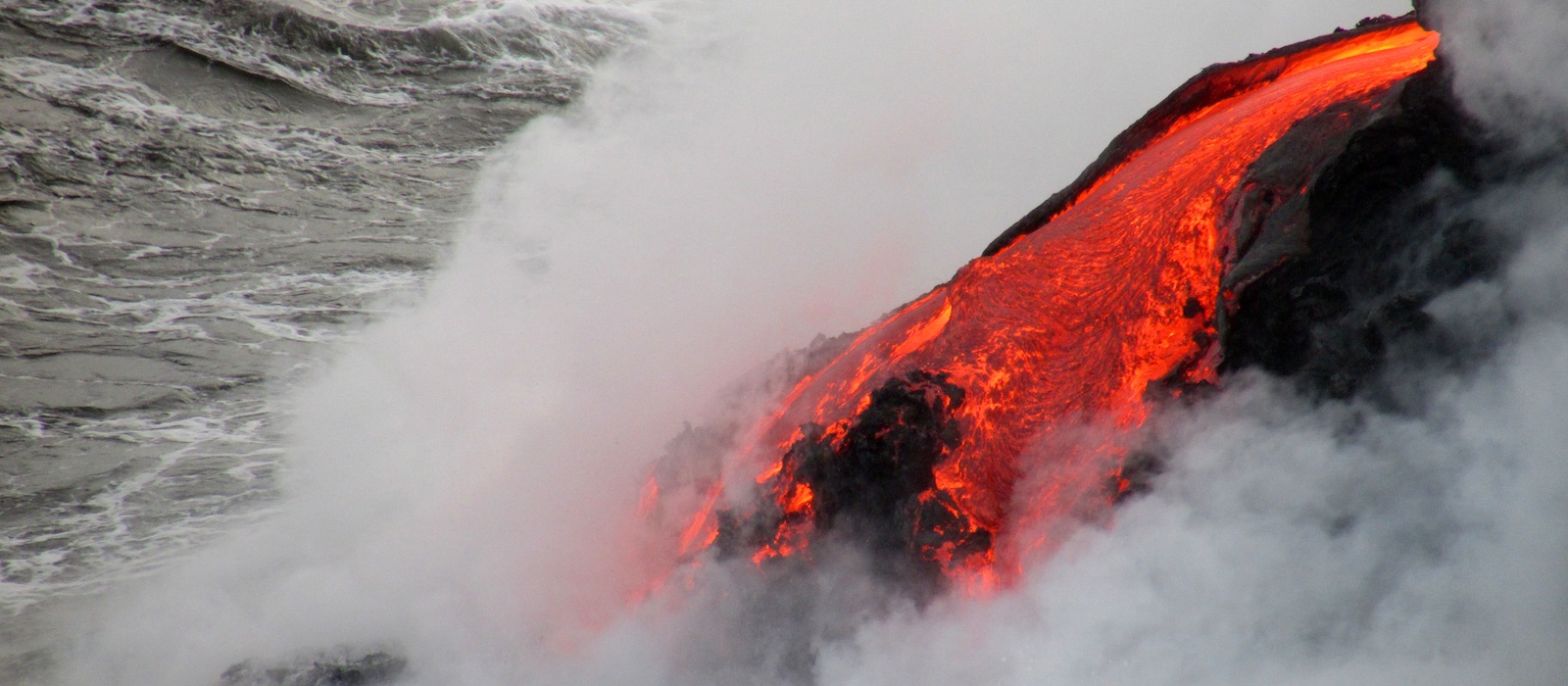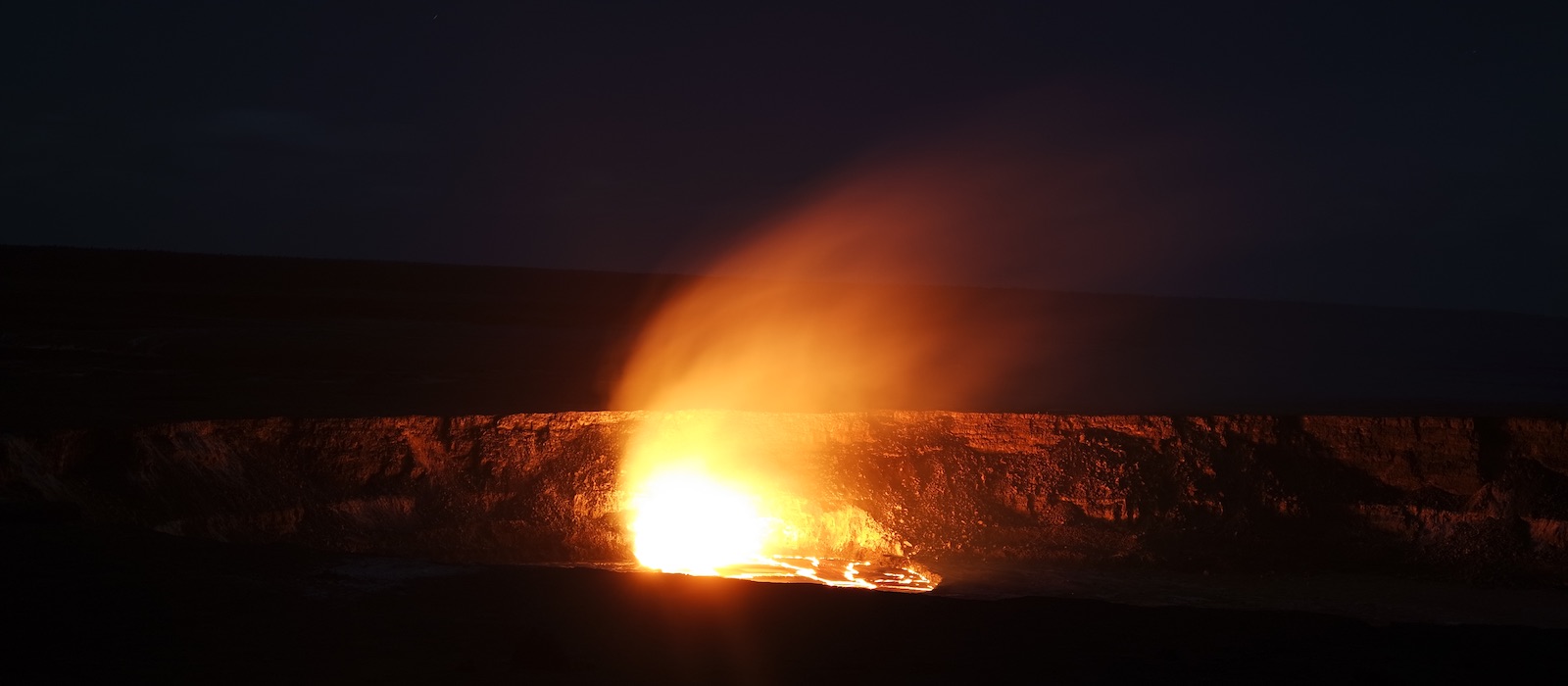Statute and By-Laws
The International Association of Volcanology and Chemistry of the Earth's Interior (IAVCEI)
STATUTES AND BY-LAWS
(6th May, 2015)
STATUTES
I. Objectives of IAVCEI
a) To promote the study of volcanoes, volcanic processes and their deposits, past and present, and of the chemistry of the Earth’s interior;
b) To encourage, initiate, and coordinate research and to promote international cooperation in these studies;
c) To arrange for the dissemination and discussion of research results and policy matters on volcanology at major conferences (IAVCEI General Assembies, IAVCEI Scientific Assemblies, Cities on Volcanoes Conferences), and Research Commission Workshops and Field Workshops;
d) To arrange for the publication of the results of scientific research on volcanology and on the chemistry of the Earth’s interior through its dedicated journal, Bulletin of Volcanology, and book series;
e) To encourage volcanologists to alert appropriate authorities to the importance of adequate surveillance of active and potentially active volcanoes and of volcanic risk assessment;
f) To be the international reference body for advice on scientific policies relating to volcanic processes, hazards and risks;
g) To provide guidelines to professional volcanologists on protocols and principles in the conduct of their work, and to help them understand their responsibilities, the expectations and consequences of their actions, in their countries of employment and service
II. Relationship of IAVCEI to IUGG
2. IAVCEI is a constituent association of the International Union of Geodesy and Geophysics (IUGG), but is autonomous in its governance structure and processes, as defined below.
3. IAVCEI will contribute to IUGG through the IUGG Bureau, Executive Committee and Council through nomination of office bearers for the Bureau, participation of its President, and by invitation, Secretary General, in IUGG Executive Committee meetings, and their attendance at IUGG Council meetings when invited, to contribute the views of IAVCEI and its members, to the business of IUGG.
4. IAVCEI will receive from IUGG an annual capitation fee, based on the number of IAVCEI delegates who register and attend IUGG General Assembly conferences as IAVCEI members.
III. Membership of IAVCEI
5. In accordance with the Principle of Freedom of Participation in Learned Societies (see Appendix), anyone who has interests in volcanology or geochemistry can become a member of IAVCEI, irrespective of country of origin, and participate in the governance of IAVCEI.
6. Those wishing to become members of IAVCEI must apply on-line for membership through the IAVCEI website, and must pay the annual fee to maintain membership.
IV. Administration of IAVCEI
7. IAVCEI will be managed by a democratically elected Executive Committee, that is elected every 4 years, immediately prior to the IAVCEI General Assembly.
8. The Executive Committee will consider business brought to it by members of the Committee, individual members of IAVCEI and the IUGG Bureau and Executive Committee.
9. The IAVCEI Executive Committee will conduct its business progressively during its 4-year term through meetings of the Committee at IAVCEI Scientific and General Assemblies, and in the interim as e-business and video conferences.
10. The IAVCEI Executive Committee is empowered to make policy decisions on behalf of IAVCEI and its members, but major policy decisions should be ratified by members through an on-line plebiscite, or at meetings of members during IAVCEI General and Scientific Assemblies.
11. The Executive Committee of the Association shall consist of 11 members. Candidates for the following 9 positions are democratically nominated by, and elected by, IAVCEI members:
- President
- Secretary General
- two Vice-Presidents
- four Ordinary Committee Members
- an Early Career Researcher, aged 35 or less at the time of nomination
12. In addition, the immediate past-President will be an ex-officio member of the Executive Committee for one term to provide continuity and offer advice to the new committee.
13. The Editor of Bulletin of Volcanology is invited to be a non-voting observer on the Executive Committee to provide insight from his/her dealings with IAVCEI members through the association’s publication processes. She/he may also be nominated to become an elected member of the Executive Committee.
14. The President may only serve for one term as President.
15. The Secretary General is elected for two 4-year terms.
16. All other members of the Executive Committee are elected to serve for one term of 4 years in the first instance, but may serve one extra term if nominated and elected for a second term at the next election.
17. No more than two members from the same country can be elected to the Executive Committee during one 4-year term of office.
18. An Assistant Secretary may be appointed by the Secretary General to help with his/her duties, including the role of web-master for the IAVCEI website.
19. The Executive Committee shall have the power to fill any vacancy that arises on the Executive Committee during the interval between successive elections for the IAVCEI Executive Committee.
20. The Executive Committee shall have the power to appoint the Executive Editor of the Bulletin of Volcanology, as well as of other publications of the Association.
21. The Executive Committee shall have the power to create and disband Research Commissions and Task Groups of the Association.
22. Only members of IAVCEI can present papers at IAVCEI conferences, but scientists wanting to present papers at IAVCEI conferences can join IAVCEI at the time of registering for the conference. Distinguished invited keynote speakers may be exempted from this requirement.
23. Countries that are represented by individual members may apply to the IAVCEI Executive Committee to have a National Correspondent for IAVCEI to represent their national volcanological community.
24. National Correspondents are also appointed by the IUGG adhering scientific organisations in each IUGG financial member country, but it is recommended that appointments of such member country National Correspondents be done in consultation with the IAVCEI Executive Committee.
25. National Correspondents are required to act as conduits of information flow between IAVCEI and national volcanological communities, and may make representations on behalf of their national volcanological communities to the IAVCEI Executive Committee.
V. Nomination and Voting for the IAVCEI Executive Committee
26. Only individuals who are members of IAVCEI can be nominated for election to the IAVCEI Executive Committee.
27. Only members of IAVCEI can nominate another member for election to the IAVCEI Executive Committee.
28. Candidates for election to the IAVCEI Executive Committee can be from any country, except candidates for the Presidency, who must come from IUGG member countries, according to IUGG Statutes.
29. Only members of IAVCEI can vote in the election for the IAVCEI Executive Committee.
30. Nominations for candidates for election to the IAVCEI Executive Committee, must be seconded by three other current individual members, each from countries other than that of the candidate.
31. The outgoing Executive Committee has the power to nominate candidates for particular positions on the Executive Committee, when only one, or no candidates are nominated by members.
32. Nominations must be called for and submitted to the Chairperson of the IAVCEI Nominating or Election Committee no later than six months before the General Assembly.
33. The voting process will be anonymous and conducted electronically through the IAVCEI web site and will be initiated by the Secretary General and President at least three months before, and must close no later than one month before, the IAVCEI General Assembly.
34. The Secretary General and Assistant Secretary are responsible for establishing a secure on-line voting site and process, that ensures that only IAVCEI members registered as members at a defined date can vote, and that members can only vote once.
35. A Nominating or Election Committee will be responsible for overseeing the voting process to ensure that it is undertaken in accord with the current IAVCEI statutes and by-laws.
36. The members of the Nominating Committee will be proposed by the President and endorsed by the Executive Committee no later than nine months before the IAVCEI General Assembly.
37. The Nominating Committee will consist of no less than five current individual members of IAVCEI, one of whom, usually the Past President bar one, will be nominated to be the Chairperson.
38. All nominations of candidates for election to the IAVCEI Executive Committee shall be considered by the Nominating or Election Committee, which will produce a shortlist of at least one, but no more than three candidates for each of the positions on the new Executive Committee, except for the 4 general committee positions, for which no more than 12 candidates should be proposed.
39. Not more than two candidates from the same country, can be proposed by the Nominating Committee as candidates for election to the Executive Committee as a whole.
40. The Nominating Committee is also responsible for scrutinising the results and reporting the results to the President and Secretary General within a month following the close of voting.
41. The candidate(s) with the largest number of votes for each position will be elected.
42. The President-elect must be endorsed by a majority of IAVCEI National Correspondents from IUGG member countries. A non-response from a National Correspondent will be taken to be an endorsement for the President-elect.
43. In case of a tie the Executive Committee at the time of the election will elect the candidate from among those with the same number of votes.
44. The Secretary General will communicate through the website to all IAVCEI members the results of the elections before the General Assembly, and the new officers of the Executive Committee will be officially appointed during the General Assembly.
VI. IAVCEI Awards
45. To honour outstanding achievements in research and contributions to volcanology and to IAVCEI, IAVCEI will make awards at the General Assembly and Scientific Assembly to the most suitable candidates who have been nominated.
46. The awards to be made are:
a) The George Walker Award is for an early career researcher within 7 years of being awarded the PhD degree at the time of nomination. This is awarded every 2 years at each General and Scientific Assembly. Detailed criteria are available on the IAVCEI website.
b) The Wager Medal is for a mid-career researcher within 15 years of being awarded the PhD degree at the time of nomination. This is awarded every 2 years at each General and Scientific Assembly. Detailed criteria are available on the IAVCEI website.
c) The Thorarinsson Medal is awarded to a senior researcher with an outstanding international research record. The medal is awarded only at the Scientific Assembly. Detailed criteria are available on the IAVCEI website.
47. Candidates for IAVCEI awards must be members of IAVCEI.
48. Candidates for IAVCEI awards can only be nominated and supported by IAVCEI members.
49. Nominations for all IAVCEI awards must be made in writing by one member, and supported with supporting letters by no more than 3 other members.
50. The principal nominator and the 3 supporting members must be from different countries to ensure that all candidates have international profiles, and have contributed to volcanology at the international level.
51. An Awards Sub-Committee will be established by the President 6 months before a General Assembly or Scientific Assembly. The President will be Chairperson of the Awards Committee and will invite at least 4 other members with significant international research profile and experience, representing different geographic regions around the world and ensuring gender balance, to join the committee. Each member of the Awards Committee will have an equal say in the outcome for each award.
52. In addition, at each Scientific Assembly, the IAVCEI Executive Committee may decide on and award Honorary Life Membership to up to 3 members for their contributions and services to volcanology and IAVCEI over an extended period of time.
VII. Alteration and Interpretation of Statutes
53. These statutes shall be changed only by a majority of at least two thirds of votes by members in attendance at the General Assembly business meeting for members, or through an on-line plebiscite for members.
54. Any individual member may propose in writing an alteration, or alterations, to the Statutes, provided the proposal is supported by three other, current individual members in writing.
55. The Executive Committee may also propose changes to the Statutes.
56. The Executive Committee shall have the power to decide whether the proposal will be distributed to members to vote on through an on-line plebiscite or at a General Assembly.
BY-LAWS
I. National Volcanological Communities/Organisations, and National Correspondents
1. Individual countries are encouraged to establish national volcanological communities/organisations, with the following functions:
a) To foster volcanological research within their own country, and encourage membership of IAVCEI;
b) To nominate through their National Committee a National Correspondent who will act as the principal contact between IAVCEI and their national community and have the power to represent their country’s views at IAVCEI General Assemblies;
c) To submit topics for discussion at the General Assemblies of the Association. Topics so submitted should be notified to the Secretary General of the Association at least three months before the General Assembly;
d) To facilitate and coordinate, as appropriate and necessary, the dissemination of IAVCEI NEWS, correspondence and other information relating to the affairs of IAVCEI.
2. National Correspondents of IUGG member countries are asked to endorse the IAVCEI President-elect at the General Assembly.
II. Duties of Officers of the Association
3. The function of the Executive Committee is to exercise general oversight of the affairs of the IAVCEI. It should meet during each General Assembly and Scientific Assembly, and when possible during other IAVCEI meetings. At other times the Executive Committee will conduct the affairs of the Association by email exchange among its members. Its duties include the following:
a) To consider proposals for changes to the Statutes and By-Laws
b) To fill committee vacancies arising between elections for the Executive Committee.
c) In the event of the President’s position becoming vacant between General Assemblies, the Executive Committee shall appoint one of the Vice Presidents to act as President until the next General Assembly.
d) To assist in preparing the agenda and making arrangements for General Assemblies and other meetings
e) To appoint a Nominating Committee for the short-listing of candidates for election as new office bearers and the conduct of the election
f) To appoint the Executive Editor and Associate Editors of the Bulletin of Volcanology and other publications
g) To endorse Commissions and Working Groups proposed by the Vice-Presidents.
h) To consider applications for funding to the Executive Committee by Commissions, IAVCEI Conference organizing committees, individual members seeking support to attend conferences, and special purpose grants from affiliated organisations
i) To determine the membership fee structure and membership fees
j) To promote the interests of the Association.
4. The Executive Committee will also conduct the business of the Association between General Assemblies and take on the particular responsibility of pro-actively fostering the objectives and interests of the Association, the Commissions and Task Groups. The Executive Committee is responsible also for establishing Sub-committees to deal with specific aspects of the work of the Association.
5. The duties of the President are to
a) Preside at General Assemblies and Scientific Assemblies of the Association and, in consultation with the Secretary General, to regulate the business of the Association.
b) Sign documents on behalf of the Association.
c) Select and chair the Awards Committee.
d) To appoint Task Groups to address specific issues and to liaise and work with them to ensure the goals of the Task Group are achieved in a timely manner.
e) Be responsible for all protocol aspects related to the Association.
6. The duties of the Vice-Presidents are to
a) Preside at General Assemblies and Scientific Assemblies in the absence of the President.
b) Be prepared to become President should the presidency become vacant between elections.
c) Foster pro-actively the objectives and interests of the Association.
d) Manage the IAVCEI Commissions and Task Groups program, and have the responsibility for ensuring that all Commissions and Task Groups are active and functioning effectively.
7. The duties of the Secretary-General of the Association are:
a) To carry on all correspondence relating to the affairs of the Association;
b) To maintain and preserve the records of the Association;
c) To maintain a mailing list of members of the Association, and to receive and process membership applications;
d) To administer the funds of the Association, to prepare at the end of the calendar year preceding a General Assembly the accounts of the Association, and to arrange that they shall be properly audited
e) To prepare annual Financial and Activities reports for members and for IUGG
f) To ensure that the annual reports of the Association are published and distributed;
g) To prepare a budget for the ensuing four-year term.
h) In consultation with the President and members of the Executive Committee, to prepare the agenda and make arrangements for the next General Assembly, and
i) To cooperate with the other Associations of IUGG in arranging the scientific program for IUGG/IAVCEI General Assembly conferences, and with the local organising committee for the IAVCEI Scientific Assembly conferences.
8. The duties of the Assistant Secretary, in the case where one has been appointed, are to assist the Secretary-General in carrying out the duties of the Secretary General, especially in maintaining the membership register, email address list of members, and the Association website. The Assistant Secretary may be appointed Secretary-General in the event of that position becoming vacant between General Assemblies.
9. The duties of the webmaster, in case of one having been appointed, are to assist the Secretary-General in managing the website of the Association.
10. The Executive Editor of the Bulletin of Volcanology shall normally be appointed for no more than 6 years, and shall:
a) Administer the process of receipt of manuscripts and their distribution to the Associate Editors for review and acceptance (or otherwise).
b) Be responsible for maintaining high standards of content and presentation of the Bulletin of Volcanology.
c) Be empowered to sign documents on behalf of the Association that are pertinent to the Bulletin of Volcanology.
d) Appoint Associate Editors, with the approval of the Executive Committee; AEs will normally serve for periods not exceeding four years.
III. Commissions, Working Groups, Task Groups, and other committees
11. The Executive Committee, on the advice of the Vice Presidents, may establish any Research Commission devoted to the international promotion of research in any speciality of volcanology and chemistry of the Earth’s interior.
12. Commissions are usually initiated by submission of an application to the Vice-Presidents and Executive Committee by a group of members with common, but well-defined research interests, which can be presented an important research theme. Commissions may also be initiated by the Executive Committee to fill a need or gap in the research activities of IAVCEI, by contacting groups of members to encourage them to form a Commission.
13. Each Commission will have one or more leaders.
14. At least one leader should be an early career researcher.
15. The leaders will present proposals for the objectives, program, and membership of the Commission for approval by the Executive Committee.
16. Leaders normally will serve for periods not exceeding four years.
17. Leaders are expected to solicit interest and participation from IAVCEI members who may be interested in the research theme(s) of the Commission, and build up a contact list of such members.
18. Leaders should regularly provide information to and solicit suggestions from their network of members on proposed activities, and make arrangements to organize Commission activities.
19. Every Commission is required to propose and organize at least one symposium research theme for every IAVCEI General Assembly and Scientific Assembly.
20. The convenors of every Commission hosted symposium must include at least one Early Career scientist.
21. Commissions are also encouraged to organize workshops and field workshops affiliated with the major IAVCEI conferences, or outside of these, or jointly with other commissions within IAVCEI, or with Commissions from other IUGG Associations, which have related research interests.
22. Commissions may propose the formation of Working Groups to explore research interests that represent a sub-theme of related research theme to that of the Commission.
23. Working Groups should also submit an application to the Vice-Presidents, with the endorsement of the Commission leaders, with a specified life-span and clearly enunciating the goals of the Working Group.
24. At the end of the term of the Working Group it is expected to submit a report to the Vice Presidents, summarizing the outcomes.
25. At the end of the term of a Working Group, it may be terminated, or if the members of the Working Group feel there is continuing momentum, then the Working Group may submit an application to become a Commission.
26. All Commissions and Working Groups are required to submit a brief one to two page report of activities annually to the Vice-Presidents.
27. The President in consultation with the Executive Committee may establish Task Groups devoted to the short-term completion of specific scientific tasks, at the end of which term, a report(s) will be submitted to the President and the Executive Committee.
28. The President in consultation with the Executive Committee may also establish small committees devoted to the completion of specific administrative tasks.
29. These will include the Awards Committee whose responsibility, under the chairmanship of the President, is to prepare recommendations for the IAVCEI Awards at the time of the Association’s General Assemblies or Scientific Assemblies, and the Election Nominating Committee, which will oversee the election process.
IV. Alteration and Interpretation of By-Laws
30. These By-Laws shall be changed only by a majority of at least two thirds of votes by members in attendance at the General Assembly business meeting for members, or through an on-line plebiscite for members.
31. Any individual member may propose in writing, alteration, or alterations, to Statutes and By-Laws, provided the proposal is seconded (in writing) by three other current individual members.
32. The Executive Committee may also propose changes to the By-Laws.
33. The Executive Committee shall have the power to decide whether the proposal will be distributed to members to vote on through an on-line plebiscite, or at a General Assembly.
APPENDIX
Principle of Freedom of Participation in Learned Societies
IAVCEI adheres to the Principle of Freedom of Participation in Learned Societies for all scientists:
a) All scientists should be able to apply for, and be accepted for, individual membership of scientific learned societies or associations, and should be able to participate freely irrespective of age, cultural background, race, religion, political or scientific views, disability, gender, gender orientation, country of origin, country of residence, or financial status of those countries in the learned society or association.
b) All scientists who become individual members of scientific learned societies or associations should be able to participate in the activities of such societies or associations, including attendance at conferences and other activities, voting on matters that are brought to the membership, nominating others for committee positions, being nominated for committee positions and serving in those capacities if voted in by the membership.
c) Membership of a learned society or association may only be rejected or cancelled if the candidate or member has been guilty of (i) professional malpractice, (ii) discrimination against others on the grounds of age, cultural background, race, religion, political or scientific views, disability, gender, gender orientation, country of origin, country of residence, or financial status of those countries in the learned society or association, or (iii) bringing the society or association into disrepute by unfairly maligning it.
d) Disagreeing with the policies of the association or society in good faith is not deemed to malign the learned society or association, but represents the democratic right of any member of an enlightened learned society or association to state their views.
